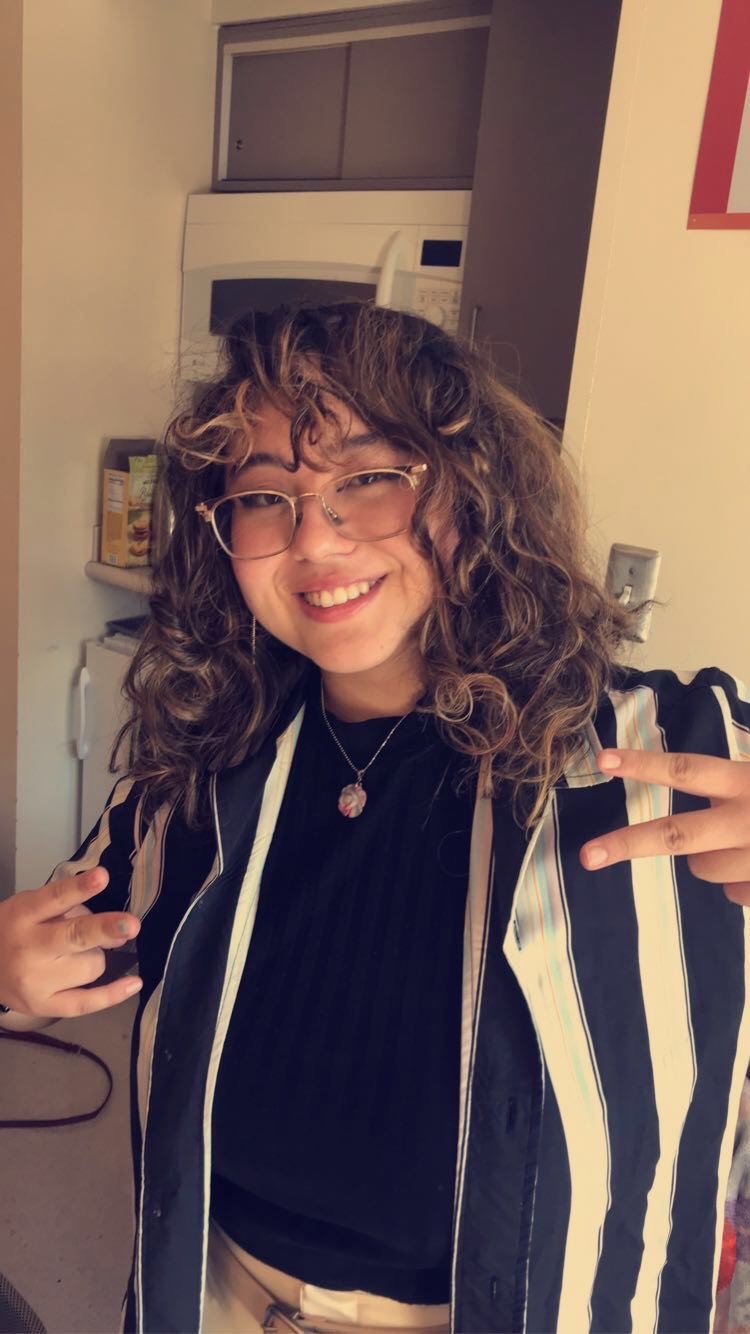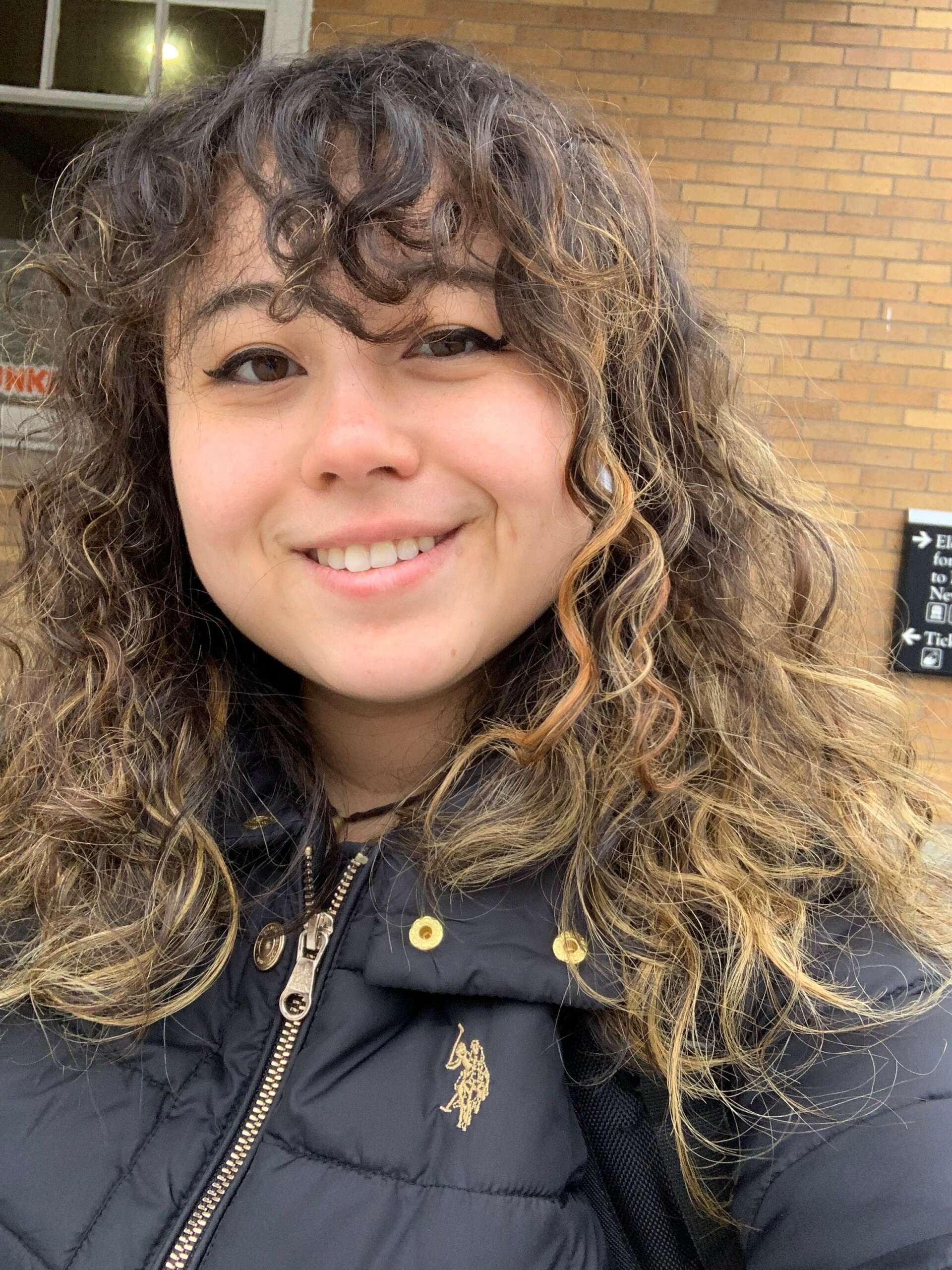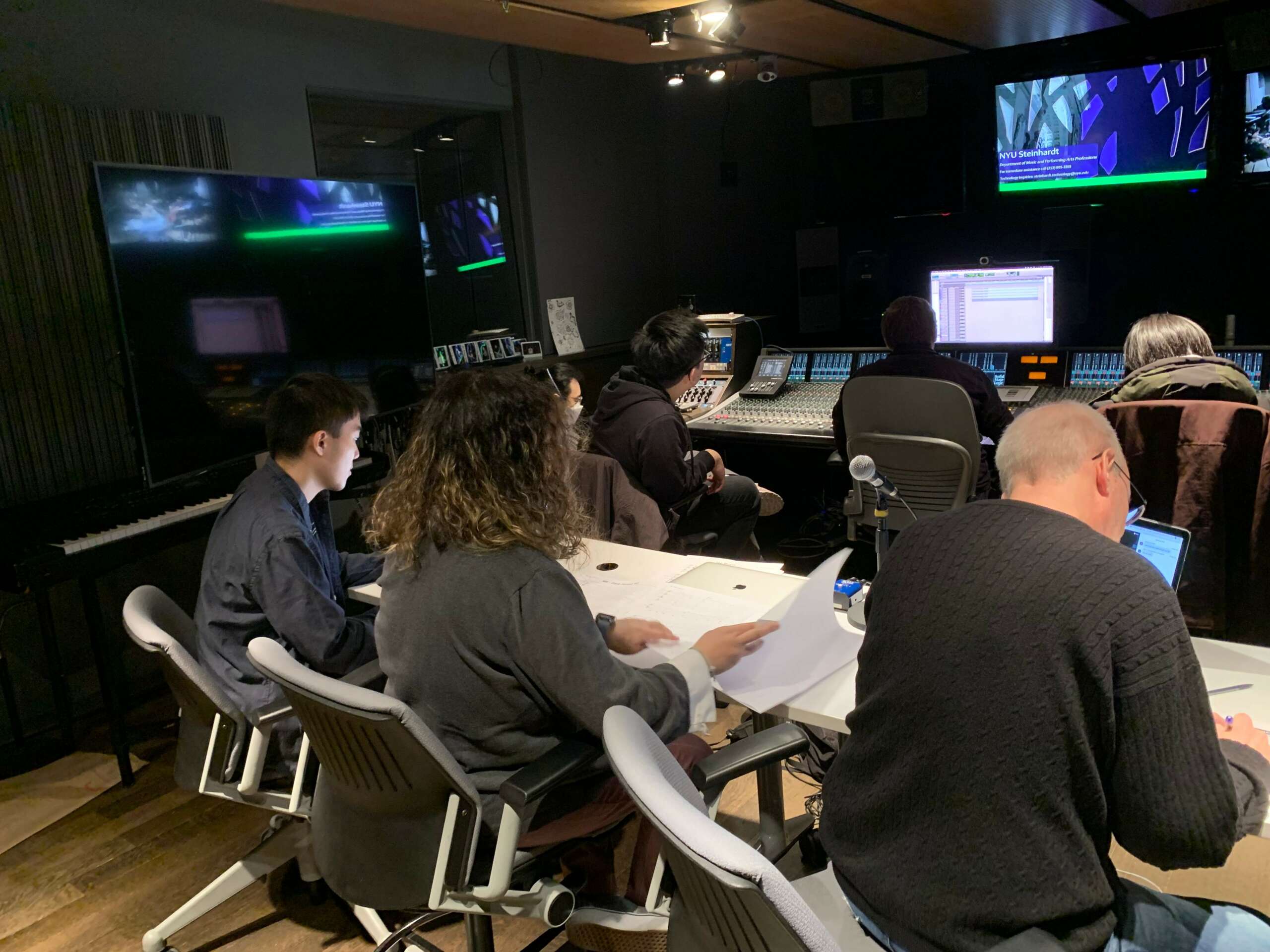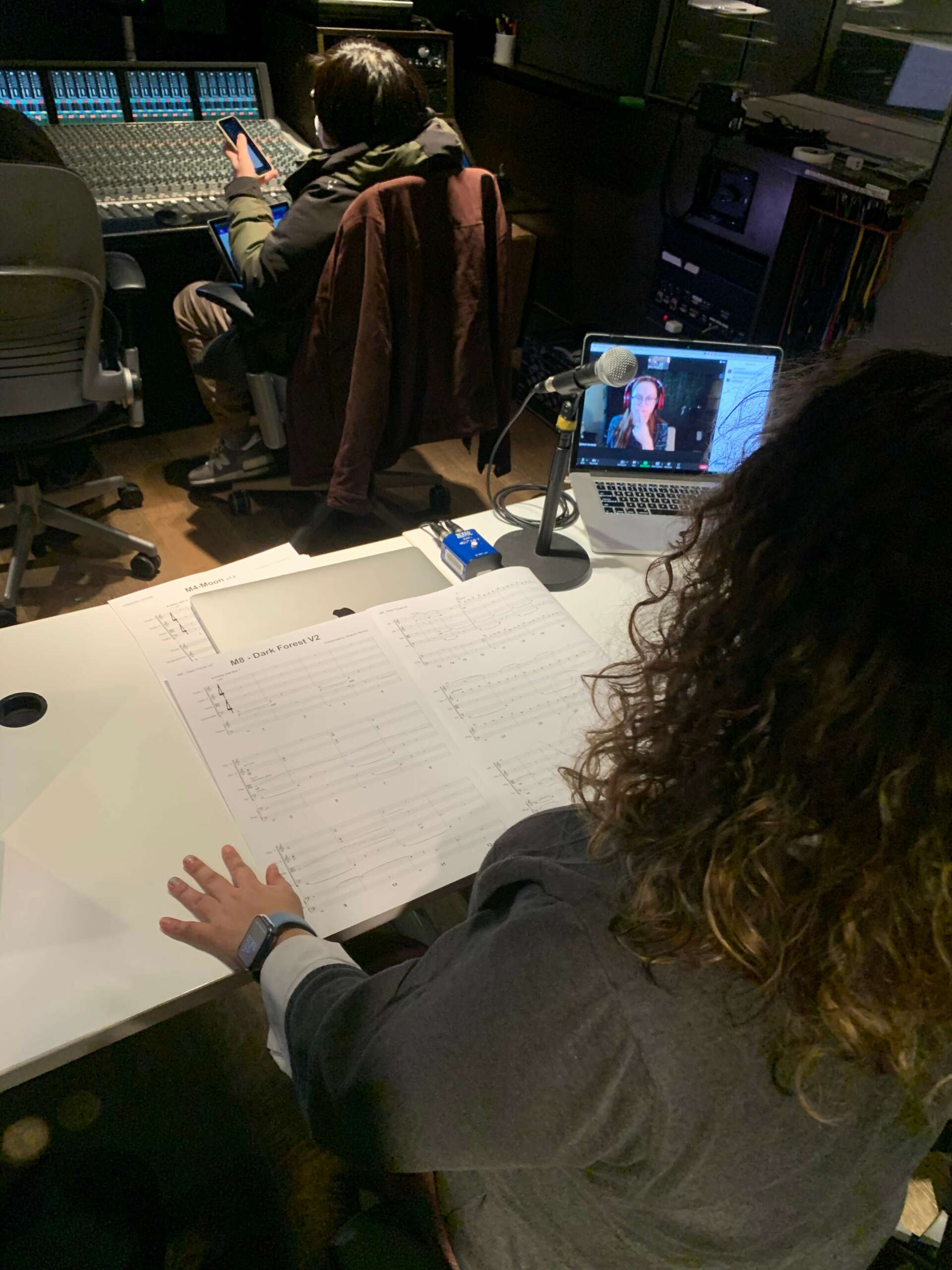We’re excited to introduce you to the always interesting and insightful Sharon Hurvitz. We hope you’ll enjoy our conversation with Sharon below.
Sharon, looking forward to hearing all of your stories today. I’m sure there have been days where the challenges of being an artist or creative force you to think about what it would be like to just have a regular job. When’s the last time you felt that way? Did you have any insights from the experience?
I started learning music when I was 7, and I had a very streamlined career since then, playing as a showcase child musician for Yamaha, and writing pieces for the LA Philharmonic by the time I was in high school. Since I spent my entire life in music, I felt that I had no other choice than to continue in music. It was all I ever did, it was all I ever knew, and all I ever thought I could be. I went on to study concert composition at Columbia University for my undergraduate degree, and as I made friends with people of all different studies, I started to wonder what that would be like. As I’ve grown with these same friends, watching them work for Fortune 500 companies, or at least having a stable 9-5 job that pays the bills, I’ve often wondered if I made a big mistake continuing in a career that is highly unstable, both in hours and in income. Working as a film composer, I feel as if I’m not sure when my workday begins and ends. When I consume media, it’s also a form of work, as I’m studying how the music interacts with the visuals, even when I’m trying to relax. When I listen to songs, if I hear something I like, I end up hyper-focusing on specific elements to crack what it was the artist did that I felt was so special. At the same time, I do find the instability exciting, perhaps in an almost sadistic way. I literally will never know what will come next, and I do very much cherish the opportunities I have to bond with other creatives, creating work that has the potential to shape the lives, experiences and culture of the general population. Sometimes I wonder if the grass is greener on the other side, and if they envy what I do. I’ve decided my path is my path, and I’m determined to see it through and make it work.


Awesome – so before we get into the rest of our questions, can you briefly introduce yourself to our readers.
When I was a child, my parents essentially acted as my agents, finding opportunities for me to learn new musical skills, entering competitions, auditioning for placements and schools, all under the blanket of concert classical composition. After I completed my undergrad degree, and having excess time to think through Covid, I decided concert composition wasn’t the best fit for my writing style, and I made the switch to film composition, where I’m now close to finishing my Master’s degree in Screen Scoring at NYU. I provide music for a myriad of mediums, whether it’s film, television, video games, advertisements, anything. With my background in classical composition, I specialize in creating anything from intimate chamber ensembles to wide sweeping orchestral sounds. When I write, I aim to create music that is relevant, memorable, and culturally significant. My biggest influence in musical sound is James Horner’s score in “The Land Before Time”, Joe Hisaishi’s work in “Spirited Away”, and the music in One Piece’s anime. What drew me especially to those tracks was the hopeful orchestral nature of the music, the kind that makes you feel like you can do anything, especially towards a goal that feels bigger than possible. And I want to instill that feeling in someone else someday. The project I’m the most proud of so far is music I’ve written for an indie videogame titled Lake Territory: REBORN, inspired by the childrens’ book franchise WarriorCats. It was my favorite series as a kid, and it’s been an honor to work alongside other creatives that are just as passionate about the project as I am. The music for it is currently the only project I have streaming on my Spotify, and I’m excited to add more to it as time goes on.


We’d love to hear a story of resilience from your journey.
Like most creatives, I am unbelievably introverted and socially awkward. In my undergrad years, my housemates had to physically drag me out of my room to get me to go outside and touch some grass. When I set my mind to pursuing a masters degree, I knew it would be a huge financial burden. I was determined to make the most of it, and knowing that the music and film industry is largely driven by connections and networking, I felt that I would be wasting my time if I didn’t try to overcome my fear of talking to new people. I was inspired by the story of Jia Jiang’s 100 days of rejection, which I found as a TedTalk on Youtube, leading me to read his book. Jia Jiang was terrified of rejection (as am I, still) and was determined to overcome it through exposure therapy. I decided to try something similar. I live out in Queens, and I commute to lower Manhattan every class day, which is around an hour commute. I set a rule that I was not allowed to step off that train until I talked to one stranger, even if it meant I had to miss my stop. At first this manifested itself as me panicking and yelling a random compliment to a stranger before sprinting out the train doors, but as I did it day after day, I found it easier and easier to talk to people I’ve never met. It was almost like exercising a muscle. I slowly learned it wasn’t as scary as I thought. I started to talk to strangers earlier and earlier into my train ride, some turning into half hour long conversations. I realized I had so much to learn from every person, and while it does still tire me out and perhaps scare me just a little, I’ve come to enjoy making frequent genuine connections with people, and I have no regrets with how I’ve been handling the use of my time at NYU.
Any resources you can share with us that might be helpful to other creatives?
Absolutely. I didn’t realize the importance of keeping up with people on social media. It’s a way to unofficially meet people, which can lead to conversations when you meet them in person. There’s so much to learn from people without speaking to them through being connected to their posts. I also wish I realized earlier on that most people really just want to help one another. I learned that as long as I’m being genuine, people who are more successful than I currently am would love to share their experiences and thoughts, which has become an invaluable resource to my growth as a creative.
Contact Info:
- Website: sharonhurvitzmusic.com
- Instagram: https://www.instagram.com/sharon_hurvitz/
- Facebook: https://www.facebook.com/sharon.hurvitz.35
- Linkedin: https://www.linkedin.com/in/sharon-hurvitz-4652b01b0/
- Twitter: https://twitter.com/HurvitzSharon
- Youtube: https://www.youtube.com/channel/UCoO-qjt0FvvN166LNzt8vBA?sub_confirmation=1


